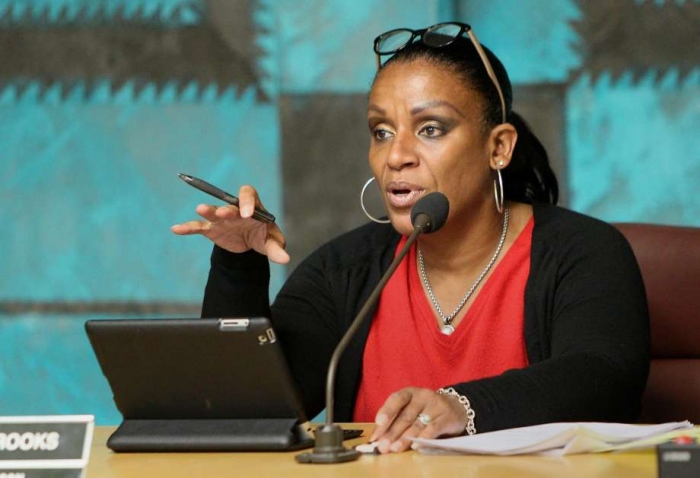Oakland Setting up Cannabis Permit System to Fail

Chip Moore, the CEO of 4&20 Blackbirds, a cannabis delivery company, exemplifies the equity applicant Oakland’s cannabis ordinance is supposed to help.
But Moore, who is black, hasn’t seen anything but obstacles in his effort to build a legitimate business.
The delays in Oakland’s enactment of its permit system for pot businesses have chased away investors, Moore told me. Because the Oakland City Council can’t get its act together, he hasn’t felt comfortable purchasing a warehouse. And without a place to operate, Moore says he won’t even be eligible for an equity permit.
So this is how the council is creating equity in a multibillion-dollar industry: by making it incredibly difficult for someone like Moore to get off the ground.
I’m baffled and appalled.
So is Moore.
“To me, these council members — they don’t have an appreciation for what it takes to get a cannabis business up and running,” Moore, 41, said. “We have a dedicated group of owners and investors who take a risk every day they wake up to build something here in Oakland.
“I think Oakland has forgotten about that commitment. They asked us to come here.”
Oakland, which became the first city in the U.S. to issue a permit for a medical cannabis dispensary in 2004, acted like a carnival barker — Step right up! — and lured cannabis business owners to participate in the city’s marijuana gold rush.
But when it came time for the council to lay down the rules, Councilwoman Desley Brooks turned the process into a circus. Her push for equity — reparations for people of color disproportionately affected by marijuana arrests and convictions — has gridlocked the process without an explanation of how her plan will keep black and brown people from being nudged out of the cannabis business.
If you go to a City Council meeting, you’ll see dozens of equity supporters, many of whom don’t have an interest in opening a cannabis business, holding posters and passing out flyers while demanding ownership. I’ve asked people who have spoken at meetings before whether they’ll be seeking an equity permit — only to be told that it doesn’t matter because the system is broken.

“They think small cannabis businesses just generate all this cash,” Moore said. “Unfortunately, that is not the real case, because we have to keep preparing for a future that is uncertain and unstable.”
An incomplete equity plan won’t fix anything. What the council has done thus far will bottleneck the permit process. They’ve set it up to fail.
Now, once again there’s a delay. This time it’s because the council removed the requirement that general or equity applicants had to prove they had lived in Oakland for at least the past three years. The residency amendment, introduced as a late-night addition this month, has stalled the law’s implementation for several more weeks.
Oakland has until January to process permits for all of its cannabis businesses, because state agencies won’t issue licenses to businesses without a local permit. To ensure that they are in line to get a permit, businesses have started looking outside of Oakland.
Moore, a Berkeley resident, can only guess what will impede his path next. We talked at Luckyduck Bicycle Cafe as people came in for cups of coffee and minor bike repairs. We were joined by three of his associates.
4&20 Blackbirds promotes cannabis culture in Oakland. Its clientele includes street artists, musicians, chefs, motorcycle clubs, tattoo artists and barbers — the people making Oakland a cool place to live, work and play.
How does the team keep from getting discouraged when it has to adjust to a new threat to its business just about every week?
“We are Oakland,” Moore said. “We’re representing something that could be lost by 2018.”
420 Intel is Your Source for Marijuana News
420 Intel Canada is your leading news source for the Canadian cannabis industry. Get the latest updates on Canadian cannabis stocks and developments on how Canada continues to be a major player in the worldwide recreational and medical cannabis industry.
420 Intel Canada is the Canadian Industry news outlet that will keep you updated on how these Canadian developments in recreational and medical marijuana will impact the country and the world. Our commitment is to bring you the most important cannabis news stories from across Canada every day of the week.
Marijuana industry news is a constant endeavor with new developments each day. For marijuana news across the True North, 420 Intel Canada promises to bring you quality, Canadian, cannabis industry news.
You can get 420 Intel news delivered directly to your inbox by signing up for our daily marijuana news, ensuring you’re always kept up to date on the ever-changing cannabis industry. To stay even better informed about marijuana legalization news follow us on Twitter, Facebook and LinkedIn.




